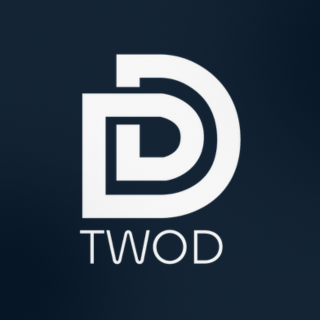In recent years, we have witnessed an interesting phenomenon: the resurgence of interest in instrumental music, especially among young people.
In a world dominated by technology, one would think that traditional musical instruments would be forgotten. However, the opposite has happened.
Digital platforms, social media, and mobile apps have democratized access to musical learning. Today, anyone can learn to play an instrument from home, without having to pay for expensive lessons or attend a music school.
One of the instruments that has gained popularity is the violin (acoustic or classical guitar). Its versatility, portability, and warm sound make it an ideal choice for both beginners and experienced musicians. And thanks to new technologies, learning to play the violin has never been easier.
Music as a form of expression and therapy
Music not only entertains, it also heals. Various studies have shown that playing an instrument can reduce stress levels, improve concentration, and strengthen memory.
For many people, learning the violin has been an escape, a form of personal expression, or even a tool for emotional healing.
Furthermore, musical learning enhances essential cognitive skills. Playing the violin involves coordination, rhythm, auditory sensitivity, and concentration. Regular practice develops discipline and perseverance, two fundamental values for personal growth.
Why do so many people choose to learn the violin?
Among all instruments, the violin stands out for its accessibility and adaptability to different musical styles: pop, rock, blues, flamenco, classical music, and even Christian music.
It can be played solo or accompanied by other instruments and voices. Its initial learning curve is easier compared to other instruments like the violin or piano.
Plus, there's an emotional factor: many people dream of playing their favorite songs from a young age. And when they discover they can do it from their cell phone, their interest increases.
Mobile Apps: The New Music Teacher
One of the greatest technological advances has been the creation of apps designed to teach music. These apps combine modern pedagogy with interactivity, allowing users to learn at their own pace, at any time of day, and without external pressure.
Many of them offer progress tracking, personalized exercises, and automatic corrections based on artificial intelligence.
This approach has revolutionized the music market, providing opportunities for millions of people around the world who previously couldn't access private lessons. Furthermore, most of these apps have a free version that allows users to get started without any financial commitment.
The rise of free violin apps
Among the vast array of apps available, some stand out for their quality, effectiveness, and accessibility. These apps have been downloaded by millions of users and have very positive reviews in online stores.
And best of all, many of them are completely free or have a free version with enough features to learn from scratch.
What makes these apps special is their ability to adapt to each individual's level. Whether you're a complete beginner or have some experience, you can find personalized lessons, familiar songs to practice, and helpful tips to improve your technique.
Plus, many apps use your phone's microphone to listen to your playing and give you real-time feedback. It's like having a teacher at home, but without the fixed schedule or high costs.
Simply Guitar: Simple and Effective Learning
After trying several options, one of the applications that has caught the attention of professionals and beginners is Simply GuitarThis app has become a benchmark in the world of music learning thanks to its intuitive design, structured methodology, and the quality of its content.
Developed by the JoyTunes team, Simply Guitar offers a step-by-step approach so anyone can learn the violin from scratch.
The app starts with the basics: how to hold the instrument, tune it correctly, and play the first chords. It then guides the user through real songs, tailored to their level.
One of the great advantages of Simply Guitar It's its ability to listen to what you're playing and offer real-time corrections. This allows mistakes to be detected instantly and quickly corrected.
The app also includes high-quality instructional videos, practical exercises, and weekly challenges to keep motivation high. As you progress, you unlock new lessons and songs, creating a sense of continuous progress.
And although it has a premium version, Simply Guitar's free option is more than enough to start playing from scratch and gain a solid foundation.
Music Marketing: How to Position Learning Apps
From a marketing perspective, the success of these apps is no coincidence. There's a well-defined strategy behind every interface, video, and feature.
The developers have understood that today's audiences seek immediacy, personalization, and visible results. Therefore, they have designed immersive user experiences with visual rewards and motivating notifications.
The gamified approach also plays a key role. Learning music becomes a game, where each lesson completed represents an achievement, and each song mastered, a personal victory.
This system keeps the user engaged and reduces the dropout rate, a common problem in self-learning.
Additionally, many apps like Simply Guitar have invested in social media-oriented advertising campaigns, where emotional videos and real testimonials generate connection with the target audience.
It has been proven that showing ordinary people learning from scratch has much more impact than showing professional musicians.
The business opportunity behind musical learning
For those of us who work in digital marketing, the boom in learning apps represents a huge opportunity. There's a growing demand for accessible educational content, and the music niche is constantly expanding.
Creating campaigns, SEO content, audiovisual ads, or collaborations with media influencers can generate significant returns if executed correctly.
Furthermore, there's a very strong emotional component to learning music. When a person plays their first song, they feel a sense of satisfaction that's hard to describe. Harnessing this feeling in your communication strategies can make the difference between a successful campaign and a forgettable one.
See also:
- Free apps to play the accordion are surprising.
- Young people learn mechanics for free from their cell phones.
- Free apps revolutionize learning mechanics
- Thousands recover their lost memories for free
- Free applications to listen to FM radio
Conclusion: The future of music is in your hands
We live in an era where technology and art complement each other in surprising ways. Learning to play the violin, which once required time, money, and travel, can now be done with just a cell phone and an internet connection.
Apps like Simply Guitar have shown that it's possible to democratize access to music and turn learning into a fun, flexible, and effective experience. No matter your age, level, or previous experience, if you're eager to learn, today you have all the tools at your fingertips.
And from a marketing perspective, promoting these types of solutions is not only profitable, it is also rewarding. Because we are helping people realize old dreams, discover new talents and transform their own routine through music.


